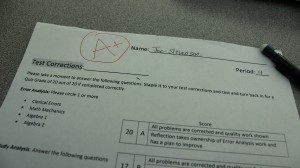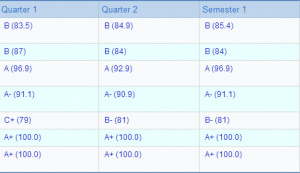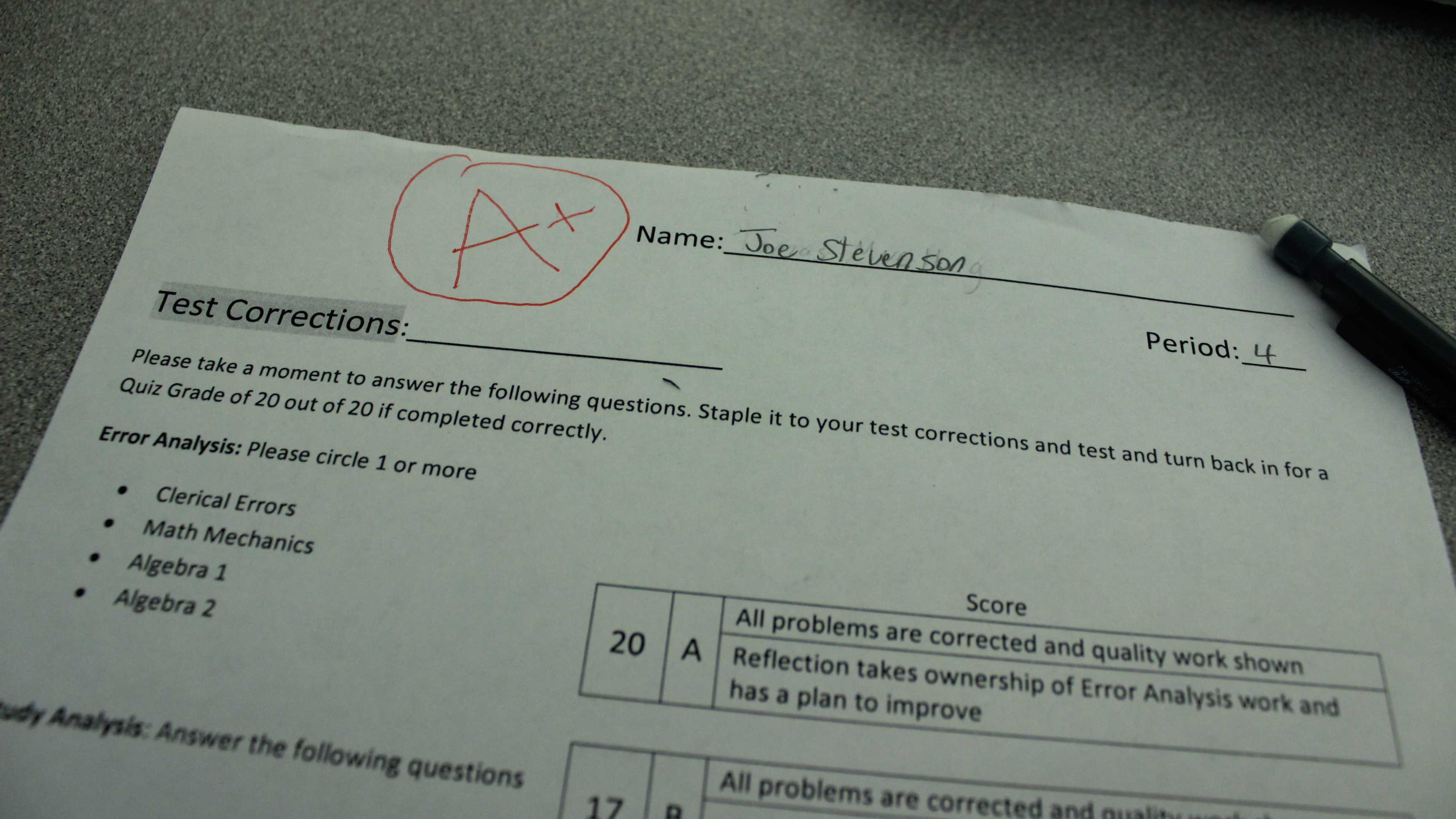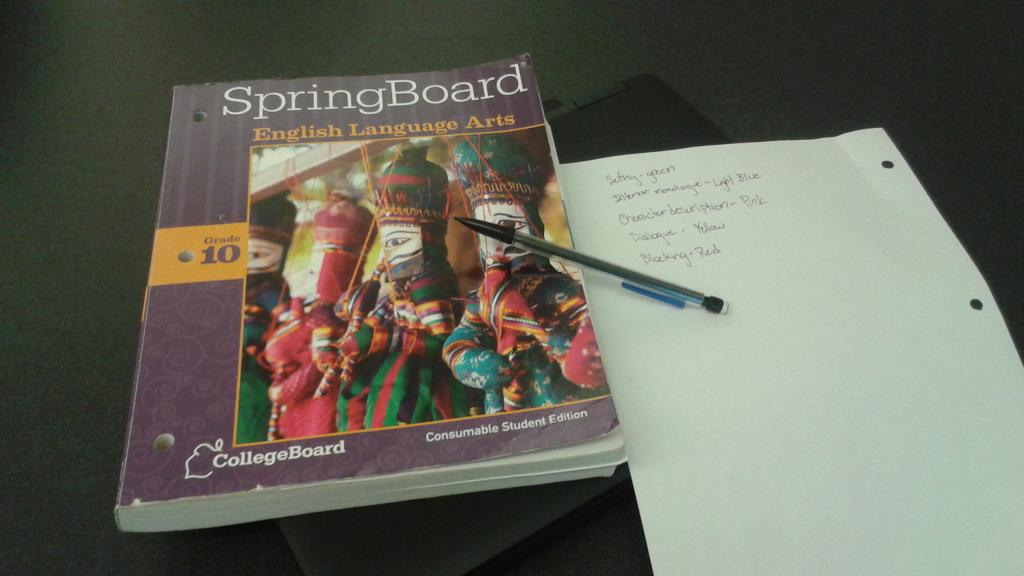
For some high school students, getting an F is the worst feeling in the world, and many students associate the letter grade they receive directly to their overall performance in school. Fossil Ridge High School uses what is called a Criterion-Referenced Grading System. According to the U.S. Department of Education, “The scale does not change regardless of the quality, or lack, of the students. For example, in a class of 100 students there might be no one or any number of students who score high enough to achieve a grade of excellent, or who fail.”
FRHS assigns letters to a certain percentage out of 100. Teachers also weight different things like quizzes, homework and tests by a percentage of a student’s overall grade. This system of assigning a letter grade to a student’s performance is one that’s been used for a long time in America, and is the most commonly used system of grading. However, many students disagree about the grading system used at FRHS.
“[The grading system] is skewed because the tests out way the other assignments by a very noticeable percentage,” junior Peter Muelling said. “You can do no homework and pass the class still with at least a B.”
Usually at FRHS, teachers weigh the final as 20 percent of a student’s final grade, whereas smaller quizzes and homework are rarely 10 percent of the total grade. The debate about the weight of grades is if it’s fair to weight big tests and finals as such a large part of the final grade. For example, if a student works hard all year and has a low A but fails the final, they could potentially end up with a letter grade lower.
“I feel like it causes a lot of grade inflation, but I don’t see a better way to do it,” junior Leah Baechle said. “If you do just homework and not get anything out of it, you should probably fail the final. But at the same time, if you have just bad test anxiety, it’s not fair to work hard all year and then fail.”
Other than the problem of grade inflation and weighting assignments differently, the other issue some students have with our current grading system is the concept of assigning letter grades to determine effort. Although the letter grade is equal to a percentage, most students associate the letter grade with good or bad, pass or fail. For example, a letter grade of ‘C’ literally means 70 percent—average. But many students, like freshman Paige Otto, view a C as failure.

“I get As, I work hard for them,” Otto said. “I consider a C a bad grade; it means I wasn’t as successful as I should be.”
Other students view a C as a success when they’re barely making it by. Almost all students agree that an ‘F’ is failure, and while it does stand for that, an F does equal 50 percent, meaning half of the overall material was understood.
“I have Bs and Cs, which I think is pretty accurate considering I don’t put in much effort,” Muelling said. “A ‘C’ or even a ‘D’ is passing, and that’s all that counts.”
Some people, including many teachers, like the way grades are handled at FRHS. “I actually like our grading system; I think it’s fair,” finance teacher Jenifer Stewart said. “It assigns a letter grade equal to the amount of effort [students] put in. It’s easy and understandable for kids. I see nothing wrong with it.”

According to the U.S. Department of Education, there are other alternatives to the grading system we use now. There are two other main kinds of grading systems, known as the Norm-referenced grading system and pass fail systems. The Norm-referenced grading system is more tailored to college-aged students, and involves a competitive aspect for the students to compete to be in the top 10 percent of the class. For this system to work, however, the students have to have relatively the same ability and capacity to strive to be in the top 10 or 20 percent. Those who make the top ten receive and A, those in the top 20 percent receives a B and so on.
Pass fail systems work best in music or art classes because the evaluation of the work is subjective. In a pass fail system, either students pass the class or they don’t depending on the effort put in. For example, the student would have to achieve at least a satisfactory rating to pass the class. This system might not be very efficient in a math class or a class where the student needs to know their level of understanding, not just if they know enough to pass.
Kinard Middle School has a standard system, which is another option. Kinard recently switched to the new system, which bases everything off of a 1-4 point systems (a score of 4 is excellence and 1 is failure. There is no rounding up of points, so a 2 would equal exactly an 80 percent, or a B-. This system also receives a lot of complaints because of the fact that scores cannot round up or down.
“It’s not fair,” eighth grader Max Gannett said. “If I did well enough to get an 85 percent but still get a 3 that means it’s an 80 percent. There’s no in between.”
Even some students who have graduated from Kinard and currently attend FRHS have complaints.

“[The Criterion-Referenced Grading System] is better than the standard base, but it confuses me because they don’t correlate,” Otto said. “Like, if I got a 3 at Kinard and a B+ here, you can’t really compare them.”
“There’s not much else we could do,” Stewart said. “I mean, I guess I could assign gold stars as an alternative. Would that make kids happier?”




















